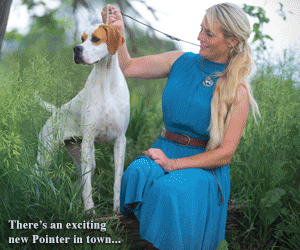Important to Me – Important to You
Click here to read the complete article
Alternative Dispute Resolution
By Debra Vey Voda Hamilton, Esq. Hamilton Law and Mediation
Think about what is important to you. If you take a moment, it is pretty clear. Now think about what is important to your significant other, co-owner, breeder or neighbor. Understanding what is important to others will save you an incredible amount of grief and misunderstanding. Strengthening your ability to appreciate what is important to another person can lead to quicker solutions when issues arise. It is one of the true “art forms” in alternative dispute resolution. Mediation helps you appreciate it and is one of ADR’s most sought-after processes.
Misunderstandings often arise when one party fails to hold what is important to another as important to them. People tend to grade on their own importance quotient. One party may find discussion on a topic lacking in importance, so they dismiss it. If the other party holds it important, they feel disrespected by the obvious disinterest. This is when situations unravel. Only the person holding the opinion of importance can decide to change or relinquish their definition.
They may take one of three paths in this scenario to solution. They can choose to succumb to another’s point of view or opinion to keep the peace, stand fast and dig in until they feel heard, or decide to discuss why this particular item is important to them in terms the other party can understand. It helps to communicate the importance of an issue to you, to someone else, in a way that recognizes the other party is not a mind reader. The other party can then decide to listen and understand what is important to you because it is important to you and they want to respect you.
An example of this might be neighbors with roaming dogs. One neighbor may choose to let their dog roam free. It does not automatically follow that the other neighbors will accept this dog on their property. What is important to them, keeping dogs in their own yard, is not important to the neighbor who allows his dog to roam free. Speaking to one another about what each perceives as important can be a challenge. This conversation often leads to disagreements, misunderstandings and a breakdown in communication. You are a tyrant because you don’t want Fluffy to roam free. He is inconsiderate because he allows this dog to potty on your property.
A more common example occurring in the show world is a breeder/owner misunderstanding. The breeder holds as important what they agreed to when selling their puppy to the owner. Owners have memories of this discussion as well and what they held important. Then what is important to the breeder becomes a bone of contention with the owner and visa versa. Holding a discussion becomes impossible. What the breeder or owner holds important is not important to the other person and so the cycle of misunderstanding and disagreement goes on.
There are three simple ways to facilitate a conversation among varying definitions of what’s important. These easy tips will help you respect what is important to someone else while allowing you to feel heard and appreciated. First…listen fully to the other party’s position without offering judgement or discussion. Second…talk about your position, without feeling the pressure to agree. Finally… be aware of your own judgement on what is important.
Listening can be difficult when someone holds as important an idea you find ridiculous!! Listening to opposing points of view is generally not in our DNA, especially where animals are concerned. We hold our personal views as sacred. If others don’t agree with our definition of important, we have little time for them, or worse, belittle or bully them into silence to gain the upper hand. This usually backfires on us. Our counterpart will take bullying into submission for just so long before exploding. Listening, without comment, helps you hear them out and generally enables everyone to find common ground.
Speaking your position, without feeling the pressure to agree, creates a respectful atmosphere, which facilitates collaborative outcomes. What you feel is important IS important. Never feel stupid for your position nor decide to abandon a deeply held conviction to keep the peace. You need to feel you have been heard and respected. Making a choice to see a different ideal should be one made with understanding and appreciation of all sides of the issue.
Recognizing your own bias is key to finding a middle ground that works for all involved parties. In the examples above, if one neighbor acknowledged the importance of allowing dogs to roam free, the neighbor who held this belief may then be available to listen to the importance of a roam free zone on other’s property. If the breeder appreciated the owner’s memories of their agreement or the owner appreciated the breeder’s memory, things may be more easily resolved.
Allow time to hear and acknowledge what is important to all parties. Doing so enables everyone to feel heard and respected. You may need a neutral third party to facilitate these discussions. A mediator can work his/her magic to ensure everyone has an opportunity to air what is important to them; his or her point of view. This will move the parties toward a successful solution.
It is difficult, but not impossible to appreciate something that is important to another while having a conversation about what is important to you. This process is the bedrock of alternative dispute resolution. It facilitates finding a path toward the least resistant solution that meets everyone’s needs.
Short URL: https://caninechronicle.com/?p=90758
Comments are closed











